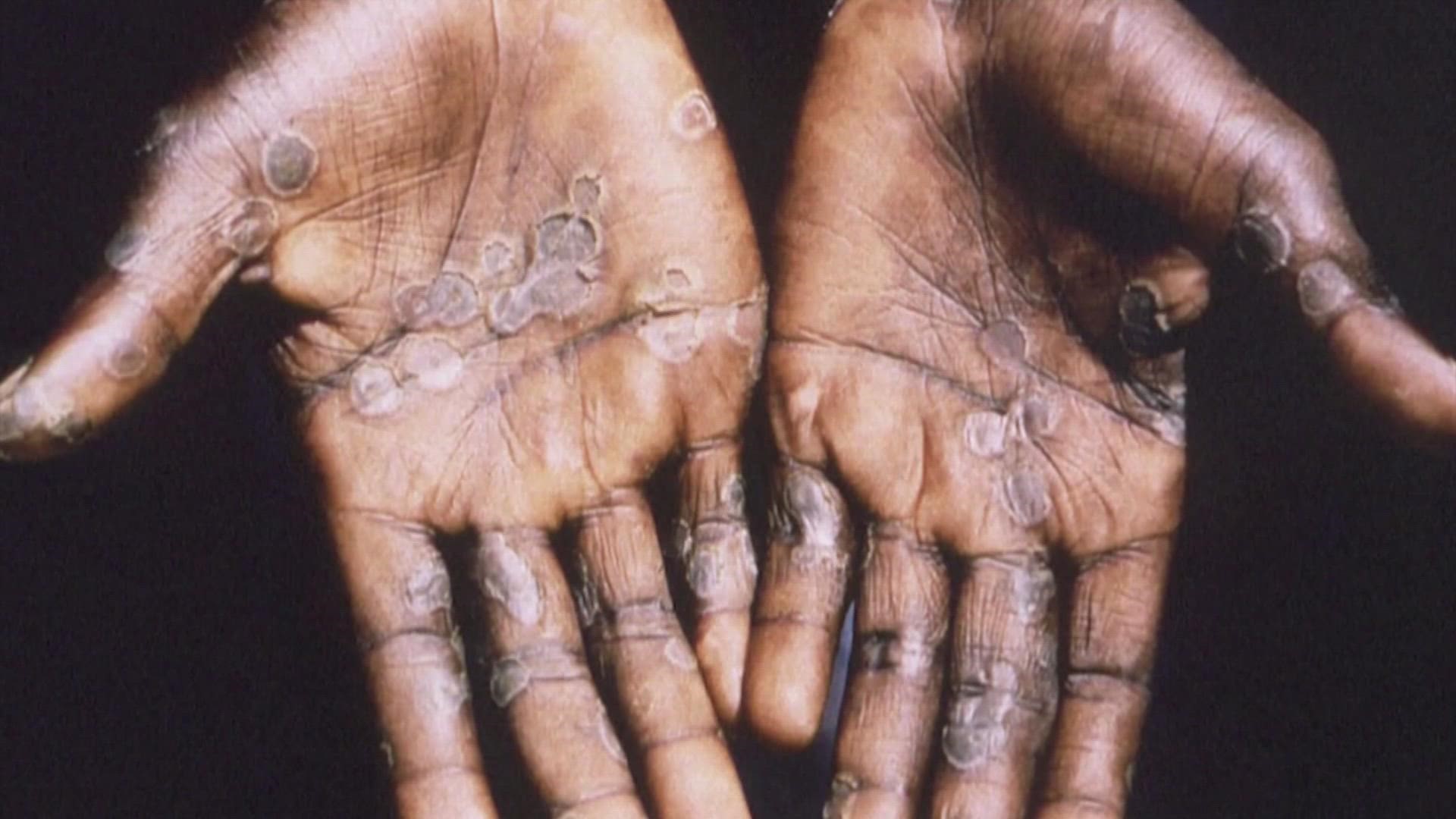GALVESTON COUNTY, Texas — Galveston County is monitoring an out-of-state individual who may have contracted monkeypox.
The individual is currently isolated in Galveston County. Health officials are working to identify who may have been exposed to this individual.
The case is pending confirmation from the Centers for Disease Control and Prevention (CDC).
“While the risk level for our community is low, we do know that monkeypox is here in Galveston County and our region. We encourage residents to seek medical attention if you notice a new or unexplained rash or other monkeypox symptoms,” said Dr. Philip Keiser, GCHD CEO and Galveston County local health authority.
Monkeypox cases are on the rise across Texas. The Texas Department of State Health Services reported 110 cases as of July 19.
Across the Houston region, which includes dozens of counties, there are 34 cases as of July 19.
How does monkeypox spread?
- The disease, which can cause a serious skin rash, appears to be spreading largely via direct contact with the skin or saliva of an infected person.
- Monkeypox can spread from person to person through direct contact with the rash, scabs or bodily fluids like saliva.
- It can also be transmitted with prolonged face-to-face contact via respiratory droplets.
- Pregnant women can transmit the virus to their fetus through the placenta.
- At this time, it's not known if monkeypox can spread through semen or vaginal fluids. However, the DSHS says the majority of Texas cases, so far, involve men who've had sex with other men.
Monkeypox symptoms
- Fever
- Headache
- Muscle aches
- Swollen lymph nodes
- Chills
- Exhaustion
- Rash that looks like pimples or blisters; the rash often appears first on the face and/or inside the mouth and then on other parts of the body.
Anyone who develops a rash should avoid direct contact with others and contact their health care provider as soon as possible for the next steps.
Until the rash is completely healed, you can spread the virus.
Is monkeypox deadly?
Infections with the strain of monkeypox virus identified in this outbreak—the West African strain—are rarely fatal. Over 99% of people who get this form of the disease are likely to survive. However, people with weakened immune systems, children under 8 years of age, people with a history of eczema, and people who are pregnant or breastfeeding may be more likely to get seriously ill or die.
Although the West African strain is rarely fatal, symptoms can be extremely painful, and people might have permanent scarring resulting from the rash.

